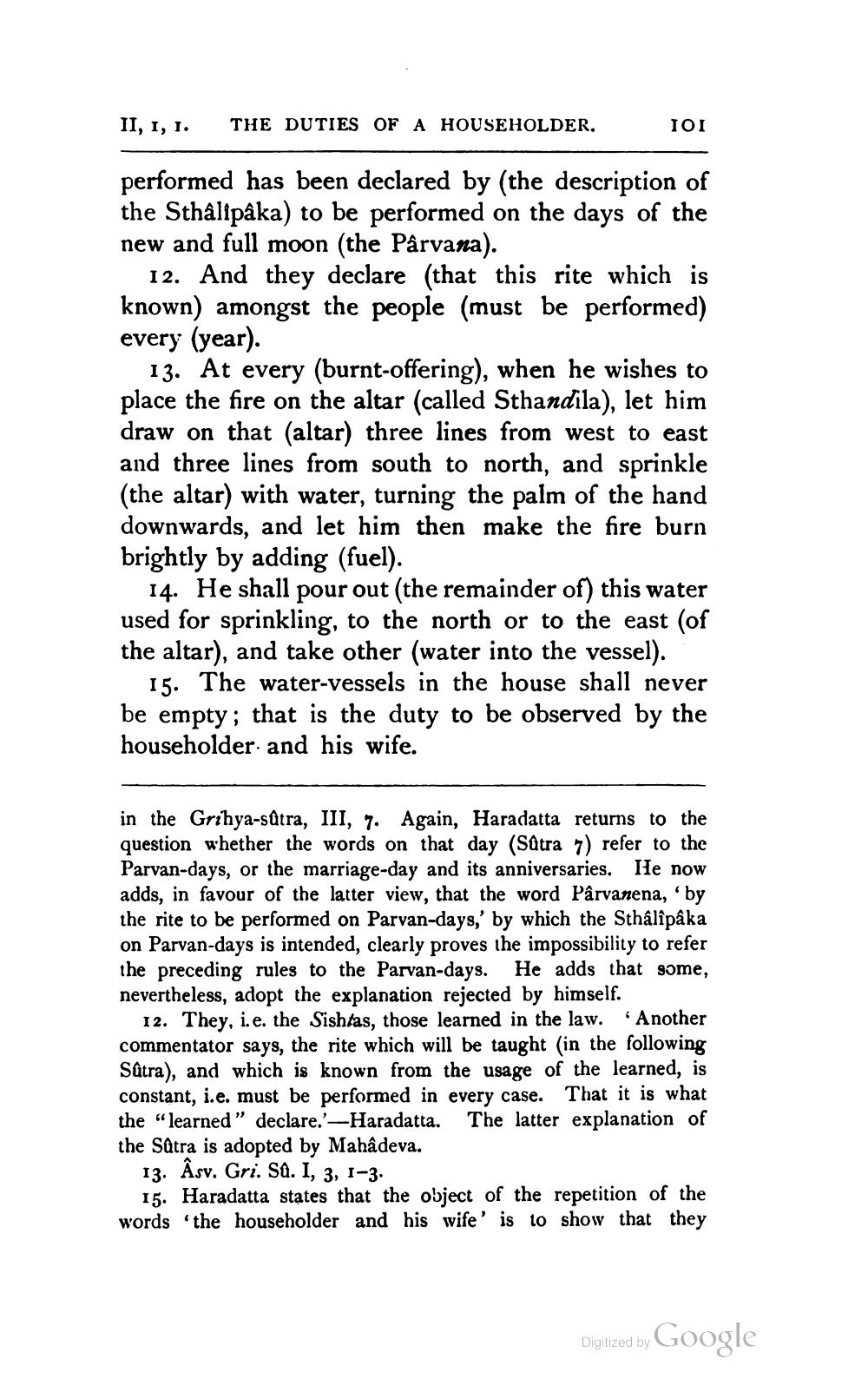________________
II, 1, 1.
THE DUTIES OF A HOUSEHOLDER.
101
performed has been declared by (the description of the Sthålipâka) to be performed on the days of the new and full moon (the Pârvana).
12. And they declare that this rite which is known) amongst the people (must be performed) every (year).
13. At every (burnt-offering), when he wishes to place the fire on the altar (called Sthandila), let him draw on that (altar) three lines from west to east and three lines from south to north, and sprinkle (the altar) with water, turning the palm of the hand downwards, and let him then make the fire burn brightly by adding (fuel).
14. He shall pour out (the remainder of) this water used for sprinkling, to the north or to the east (of the altar), and take other (water into the vessel).
15. The water-vessels in the house shall never be empty; that is the duty to be observed by the householder and his wife.
in the Grihya-sůtra, III, 7. Again, Haradatta returns to the question whether the words on that day (Satra 7) refer to the Parvan-days, or the marriage-day and its anniversaries. He now adds, in favour of the latter view, that the word Pârvanena, ' by the rite to be performed on Parvan-days,' by which the Sthâlîpâka on Parvan-days is intended, clearly proves the impossibility to refer the preceding rules to the Parvan-days. He adds that some, nevertheless, adopt the explanation rejected by himself.
12. They, i.e. the Sishtas, those learned in the law. "Another commentator says, the rite which will be taught in the following Satra), and which is known from the usage of the learned, is constant, i.e. must be performed in every case. That it is what the learned" declare.'-Haradatta. The latter explanation of the Sätra is adopted by Mahadeva.
13. Asv. Gri. Sa. I, 3, 1-3.
15. Haradatta states that the object of the repetition of the words the householder and his wife' is to show that they
Digjized by Google




